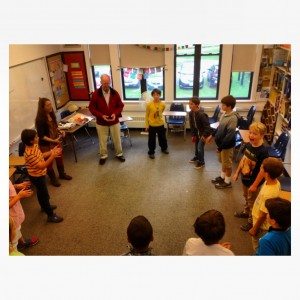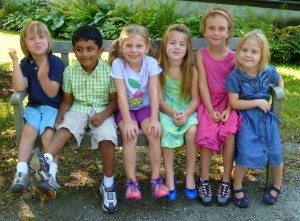A distinctive hallmark of BCD’s program in the Preschool and Lower School for over a decade has been the incorporation of a social skills program based upon the Responsive Classroom approach developed by the Northeast Foundation for Children. The findings from the latest research regarding the impact of this approach offers support for the usefulness of the Responsive Classroom approach in helping children learn and teachers teach. Here are six key findings:
Finding 1: Children showed greater increases in reading and math test scores
Finding 2: Teachers felt more effective and more positive about teaching
Finding 3: Children had better pro-social skills, felt closer to teachers, and were less fearful
Finding 4: Teachers offered more highquality instruction
Finding 5: Children felt more positive about schools, teachers, and peers
Finding 6: Teachers more frequently engaged in and placed higher value on collaboration
The Responsive Classroom approach rests on several principles grounded in education theory and developmental science (Northeast Foundation for Children 2006):
- The social and academic curricula are equally important.
- How children learn is as important as what they learn.
- Social interaction facilitates cognitive growth.
- Children need to learn cooperation, assertion, responsibility, empathy, and self control if they are to be successful socially and academically.
- Knowing children individually, culturally, and developmentally is essential to good teaching.
- Knowing children’s families is essential to good teaching.
- The working relationships among adults in school are critically important to how well children learn.
The principles of the Responsive Classroom approach guide several specific teaching practices, including these (Northeast Foundation for Children 2006):
- Holding a daily Morning Meeting to create a sense of community and provide children with opportunities to practice academic and pro-social skills
- Using an approach to devising and reinforcing rules that is developmentally and individually relevant to the child and teaches responsibility and self-control
- Organizing classrooms in ways that foster social interaction, independence, and productive learning
- Forming school/home partnerships in which teachers invite parents to share their knowledge of their child, keep them informed about what’s happening in school, and welcome their presence in the classroom
- During the first six weeks of school, taking specific steps to create a climate of warmth and safety, teach school routines and behavioral expectations for each of them, introduce school and classroom learning materials and teach students how to use and care for them, and establish expectations for how children will learn together in the days ahead
 Founded upon the framework of goals and objectives associated with Responsive Classroom, most notably individual and group success, students in grades 4-9 meet with their advisors during advisory periods each week. The purpose of advisories at BCD is community building and personal development. Drawing from the Origins Program, a middle school social curriculum which stems from Responsive Classroom’s program, advisors develop plans to foster students’ self-assessment and goal-setting; social competence, assertiveness, and sense of autonomy; communication, negotiation, and problem-solving skills; and emotional intelligence, personal awareness, and self-worth. Advisors help the group craft norms for good discussions, use varied discussion formats and techniques, and coach advisees when needed. Advisory time may be used to discuss students’ time-management struggles, high and low points of the past week, service projects, passions, and goals. Advisories can also be the forum in which the class engages in group building activities or when a major event in the class or current events are discussed. The values promoted in advisories are expressed throughout the school, and this important element in our program contributes to the very heart of our school’s culture and climate, teacher effectiveness, and students’ lives.
Founded upon the framework of goals and objectives associated with Responsive Classroom, most notably individual and group success, students in grades 4-9 meet with their advisors during advisory periods each week. The purpose of advisories at BCD is community building and personal development. Drawing from the Origins Program, a middle school social curriculum which stems from Responsive Classroom’s program, advisors develop plans to foster students’ self-assessment and goal-setting; social competence, assertiveness, and sense of autonomy; communication, negotiation, and problem-solving skills; and emotional intelligence, personal awareness, and self-worth. Advisors help the group craft norms for good discussions, use varied discussion formats and techniques, and coach advisees when needed. Advisory time may be used to discuss students’ time-management struggles, high and low points of the past week, service projects, passions, and goals. Advisories can also be the forum in which the class engages in group building activities or when a major event in the class or current events are discussed. The values promoted in advisories are expressed throughout the school, and this important element in our program contributes to the very heart of our school’s culture and climate, teacher effectiveness, and students’ lives.
As Associate Head of School Carmen Dockery Perkins wrote in her recent blog post, BCD’s teachers attended one of two full-day in-service workshops in August to develop the social curriculum within our programs. “Preschool and Lower School teachers attended a Responsive Classroom workshop which was designed to deepen their understanding of the RC model, implemented at BCD a decade ago. Middle and Upper School teachers attended the Developmental Designs workshop offered by Origins.
A recurring question throughout faculty meetings last year considered how to continue building a community that uses common language and practices which uphold best BCD’s core values: originality, quality, respect, sustainability, community, wellness, and citizenship. Middle and upper school advisors are now entering the year with this shared goal and have set aside weekly meetings to be able to collaborate as they further develop the social curriculum in these divisions. Preschool and lower school teachers also have dedicated time in their schedules now, as coverage has been made available for them during the academic day.”
The idea that emotional skills are connected and important to academic performance was highlighted in a recent NY Times article: “Can Emotional Intelligence Be Taught?” by Jennifer Kahn, University of California, Berkeley. “The theory that kids need to learn to manage their emotions in order to reach their potential grew out of the research of a pair of psychology professors — John Mayer, at the University of New Hampshire, and Peter Salovey, at Yale. In the 1980s, Mayer and Salovey became curious about the ways in which emotions communicate information, and why some people seem more able to take advantage of those messages than others. While outlining the set of skills that defined this “emotional intelligence,” Salovey realized that it might be even more influential than he had originally suspected, affecting everything from problem solving to job satisfaction: “It was like, this is predictive!” In the years since, a number of studies have supported this view. So-called noncognitive skills — attributes like self-restraint, persistence and self-awareness — might actually be better predictors of a person’s life trajectory than standard academic measures. http://www.nytimes.com/2013/09/15/magazine/can-emotional-intelligence-be-taught.html?pagewanted=1&_r=1&ref=education&


My experience in law and business over 40 years confirms for me that substantive knowledge alone is not enough. Career accomplishment for most of us depends at least as much on the strength of our interpersonal skills as on what we know and those skills are, I think, derivative of our measure of our own self worth. So the BCD programs mentioned in foregoing article would seem to be moving in the right direction. Unfortunately the gatekeeping exams that control entry to higher education (like the SAT) still focus exclusively on substantive content; so, until the tests are modified to include measuring levels of personal development, most schools will continue to devote their efforts to optimizing their students chances of succeeding on the tests as they are regardless of what these choices imply for students’ personal development.